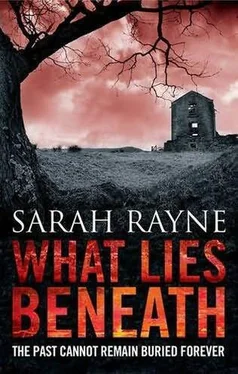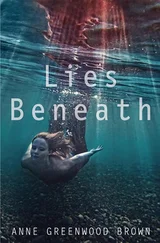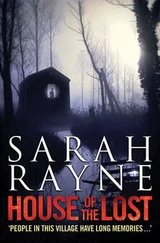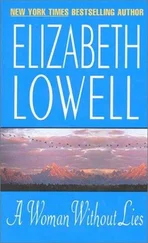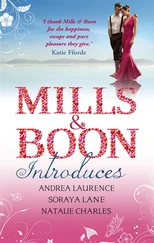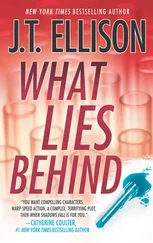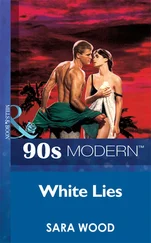I always managed to shut myself away in my bedroom until the spasms were over, but I could never be sure that the Crossley woman would not decide to mount a cleaning operation and that Hetty or Dora would not appear with mops and buckets and dusters. Eventually I solved the matter in a rather strange way.
The inhabitants of Priors Bramley had to walk across Mordwich Meadow to St Michael’s most Sundays, and St Anselm’s was used for a brief service only once a month to comply with some ancient law. The old village church had widespread dry rot, which nobody seemed prepared to tackle, or perhaps nobody could afford to. It needed the kind of restoration Crispian would probably have offered to fund, but I was not going to let Saul’s trust (which I intended one day to be mine) be plundered to eliminate dry rot in a crumbling church. I never fathomed the intricacies of the rule about the services – the Church of England can be as twisty as a corkscrew – but I do know they had to hold a service there no fewer than ten times a year or the church would have become deconsecrated or something. That seemed to worry people. I wondered if they visualized Lucifer and his legions forming an impatient queue on Crinoline Bridge, waiting for the moment when this small and obscure village church would step outside the sanctified protection of the English Church and the powers of evil could go pelting down Mordwich Bank and take up gleeful residence.
In practical terms it meant St Anselm’s was empty for long periods of time. So, when I felt the darkness start to claw at my mind, I slipped through the gardens, out through the manor’s gates and along the road to its shadowy solitude. I seldom met anyone during that brief walk: the shops and houses were further along and the church had gradually become wrapped in its own solitude.
But here’s a strange thing. Once inside the church, with the cruel violent Hyde persona tearing at me, I could never stay in sight of the altar and the various religious symbols near to it. I simply couldn’t. I always went up the narrow steep stairway to the organ loft, and that’s when I was truly safe.
It was an extraordinary feeling to crouch in that small space with the silent shadowy church all round me and the towering shape of the organ at my back, and to fight the ravaging demon in my mind but it’s what I always did. And then, one dull grey afternoon, I took more notice of the organ. That was the day I discovered it still had some life in it, although not much, I have to say. Investigating warily, I found I could pump air into the pipes – only a very little that first time, but enough to make it shiver into life. I stood there for a very long time, then, with daylight fading and grey-green shadows stealing into the church, fumbling awkwardly for the notes, I played a chord. As the sound resonated in the enclosed space, I felt as if something huge and invisible had opened up inside my mind and something dark and malevolent had flown out. I promise you it was so vivid an experience I could almost hear the beating of wings on the air. It’s not too wild a fancy, is it, to think it was my own inner madness taking flight?
I should explain at this point that I could read music in a modest way. As a child I was taught to play the piano. Crispian was taught as well, but although he banged conscientiously at the keys, he was never much good. I don’t know that I was much better, but seated in that deserted church, my mind still bruised, those lessons came back to me. And the next time I went to St Anselm’s I played more than a couple of hesitant chords.
As with most things, the more I played, the easier it became. I bought a gramophone for Cadence Manor. I said it was because I thought Saul might respond to music, but of course it was really for me.
Then I discovered a stack of abandoned music in St Anselm’s vestry and embarked on several of the pieces – warily at first, and then with growing confidence. Initially I had gone to St Anselm’s to hide, but once I began to play, the music engulfed me, and I no longer cared if anyone knew I was there.
There was a good deal of Bach among the music I found, but there were several other composers. Early on I came upon a piece of music called The Deserted Village . It had been written by an Irish composer somewhere in the mid-to-late 1800s, and it was actually an opera, but at some time in Priors Bramley’s history, some organist or choirmaster had transcribed the overture for organ. The score was handwritten, but perfectly legible. I didn’t play it – not then – but I was intrigued by the title, and by the scribbled note at the top stating that the opera had been based on an Oliver Goldsmith poem. So I wrote to one or two of the London stores, asking if a gramophone recording of the opera was available. I didn’t expect much, but within a few days one of them replied, saying they had a recording of the overture and part of the entr’acte. It had, they thought, been part of a set of recordings of the whole opera, but sadly the others had been lost. However, if I was interested in purchasing this single record they would be very happy to dispatch it. A relatively modest price was quoted, with an air of suggestion about it, almost as if they expected me to challenge it or even haggle.
I didn’t challenge and I didn’t haggle. I bought the recording. And as soon as I listened to it, something deep inside me responded. I cannot explain it – I never have been able to explain it – but I understood what the composer had tried to convey: the journey from sunlit tranquillity into darkness. And from that darkness, there’s an even deeper descent into a savage loneliness, as the village called Auburn is abandoned and left to its ruined grounds where birds forget to sing. Only one person remains in Auburn – ‘The sad historian of the pensive plain’ – scraping a meagre living from the few things that still grow there.
When Saul was six and the Great War had been over for a year I wrote to the vicar at St Michael’s church in Upper Bramley, suggesting the Cadence family would like to install a new church organ at St Anselm’s.
We did, I wrote, appreciate that the church itself was in a poor state of repair and in need of some help, but for the moment funds did not permit addressing that. So many investments had been affected by the war. However, as the vicar no doubt knew, the present organ was also in a poor state of repair. Would it be permissible for a new one to be installed, entirely at our expense? Sadly, three members of the family were in frail health and unable to make even the short journey to Upper Bramley for the various services, but the family had a shared love of music and considerable solace and pleasure had been derived from listening to it in the peaceful surroundings of St Anselm’s. Would the vicar be so kind as to approach his bishop and seek approval to this proposal?
The vicar did approach his bishop, and from the tone of the reply sent three days later, the entire diocesan board had almost fallen over themselves in their eagerness to accept. Of course they saw the veiled promise that the dry rot might later be dealt with, and of course they were going to accept this initial gift.
The organ was duly commissioned and installed in 1920, and the bishop even agreed to the engraved plaque I requested for the framework. A Christmas service was held there with a couple of other churches for its dedication. I didn’t attend, but Serena and Colm did, taking Saul. The servants went as well, very smart in their Sunday best. Flagg said afterwards that it had all been very tasteful, Mr Jamie sir, very nice indeed.
When the small flurry of excitement died down, I was able to play the new, beautifully pitched organ whenever I wanted. No one ever disturbed me: in a general way the details of what had been done to me had got out, and I think people hearing the music probably thought, Ah, there’s poor Mr Jamie from the manor, poor tragic soul. Mutilated by those heathens, but finding comfort and solace in God’s music.
Читать дальше
